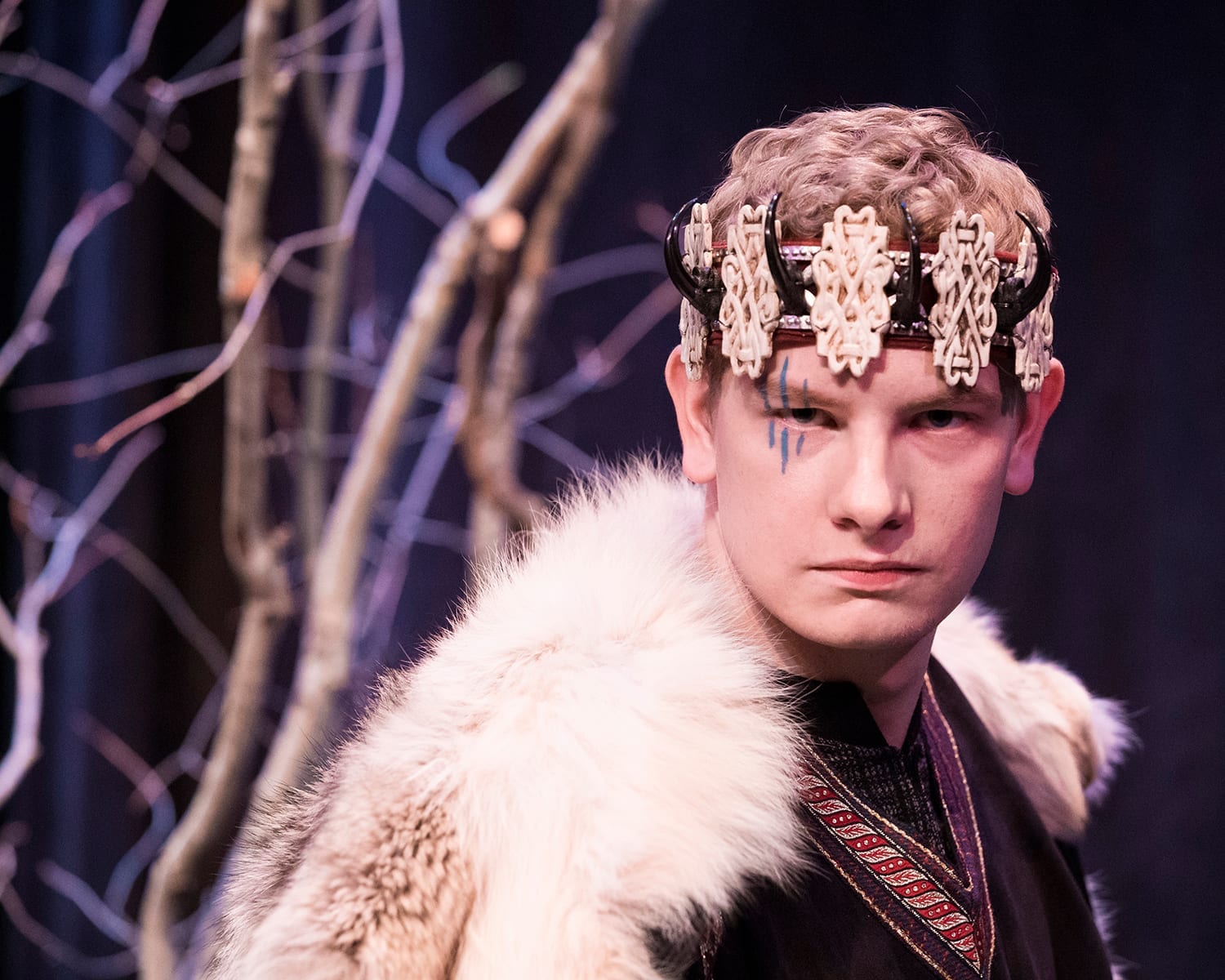PROVO — I have to admit when I heard that Brigham Young University’s Young Company was producing William Shakespeare’s tragedy Macbeth to present to young audiences, I thought, “Really? Macbeth…? For kids?” And then I thought, “Why not?” It’s got everything a kid could want: witches, intrigue, murder, blood—but not too much, and cool sword fights. I mean what’s a kid not to like? It’s the original Game of Thrones! A production of Macbeth is daunting for any theatre group, big or small, professional or amateur, but I commend BYU’s Young Company for having the courage to produce it. It’s a great way to introduce kids to classic drama.

When I first walked into the theatre, the cast, in full costume, greeted me. I thought this curious, mainly because, I mean, this is Macbeth. Don’t you want to keep the suspense and the surprise for when the “curtain goes up?” So I talked with Clara Richardson, who plays Lady Macbeth, and asked her why? “I think we want to show the kids that we’re just actors because the play is pretty scary for them. We also meet them after the play to show them there’s nothing to be afraid of.” Makes sense.
When the show starts, the actors quickly explain a few words to us so that we can understand the play more completely, and instruct us how to make the sound effects (troops marching, horses galloping) they need when they are requested of us: a really clever way of involving a young audience into the production. Director Teresa Dayley Love, who—quite deftly, whittled the play from some three hours down to a kid-friendly one—uses “puppets” as the three witches in the famous opening scene. I’m not talking about Muppets here. I’m talking twig-like, scary things brought to life by actors behind the witches’ netted bodies.

However, for all the creativity of the production, the problem with it is that the characters that people this play are deeply complex, troubled, multi-leveled, and a bit crazed, human beings, that need about three hours to develop and understand. They are hefty and rigorous roles for even the most seasoned of actors, let-alone college students. And though I admire and applaud them for their energy and pluck, the actors are up against an almost impossible task. The first Macbeth/Lady Macbeth scene where they plot the death of King Duncan must be crafted so that Lady Macbeth slyly entices Macbeth to do the deed. The audience needs to feel and understand exactly why she/they must have the crown. Instead, it felt rushed and ungrounded in the emotion of the story and the motivation of the characters. Richardson’s Lady Macbeth’s “Mad Scene” was more a frenetic episode, than the spiraling down into madness it requires. This woman is “drenched” in blood and treason, and the guilt of it takes a toll that she can no longer bear. The death of Banquo, played by Tristan Foster, was poorly staged as he simply watched his assassins walk up to him and stab him.

For all their youth, I believe the actors could have been capable of more depth had the director spent the time needed with them. They are smart, articulate and willing, but they are young. They depend upon the director to guide them through these dramatic, emotional waters. Andrew Smith as Macbeth, Richarson as Lady Macbeth, Chris Rollins as Malcolm, and Derek Johnson as Macduff do admirable jobs in their roles. Macbeth’s “Tomorrow, and tomorrow, and tomorrow” soliloquy was his best. Understated and simple, emotionally honest. It was quite lovely.
I understand that this is theatre for young audiences, as well as the time constraints that accompany it. But, the cast and director must always understand what is at the heart of the characters’ actions, why they do what they do, whether it’s for young audiences or not. It’s the only way to engage an audience. That’s the reason we go to the theatre: to be swept up in the lives of the people who are on stage. It’s not just adults who need to feel this; it’s kids as well, whether it be Star Wars, Harry Potter, or Macbeth.
[box]The Young Company production of Macbeth plays at the Margetts Theatre in the Harris Fine Arts Center February 15 through 17 at 7PM, with matinees at 2 PM and 4 PM on February 18. Tickets are $6-7. For more information, visit www.byuarts.com.[/box]
